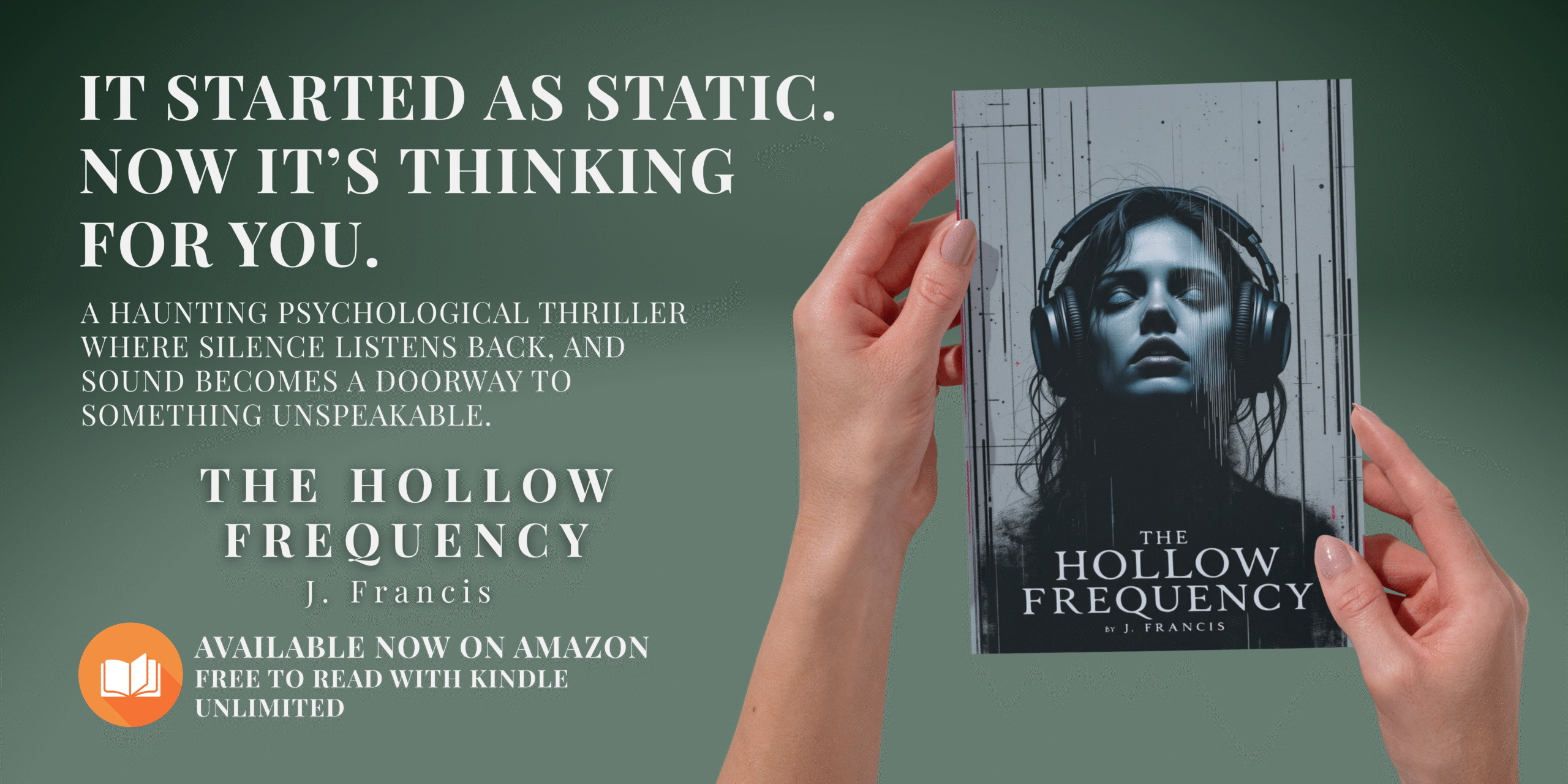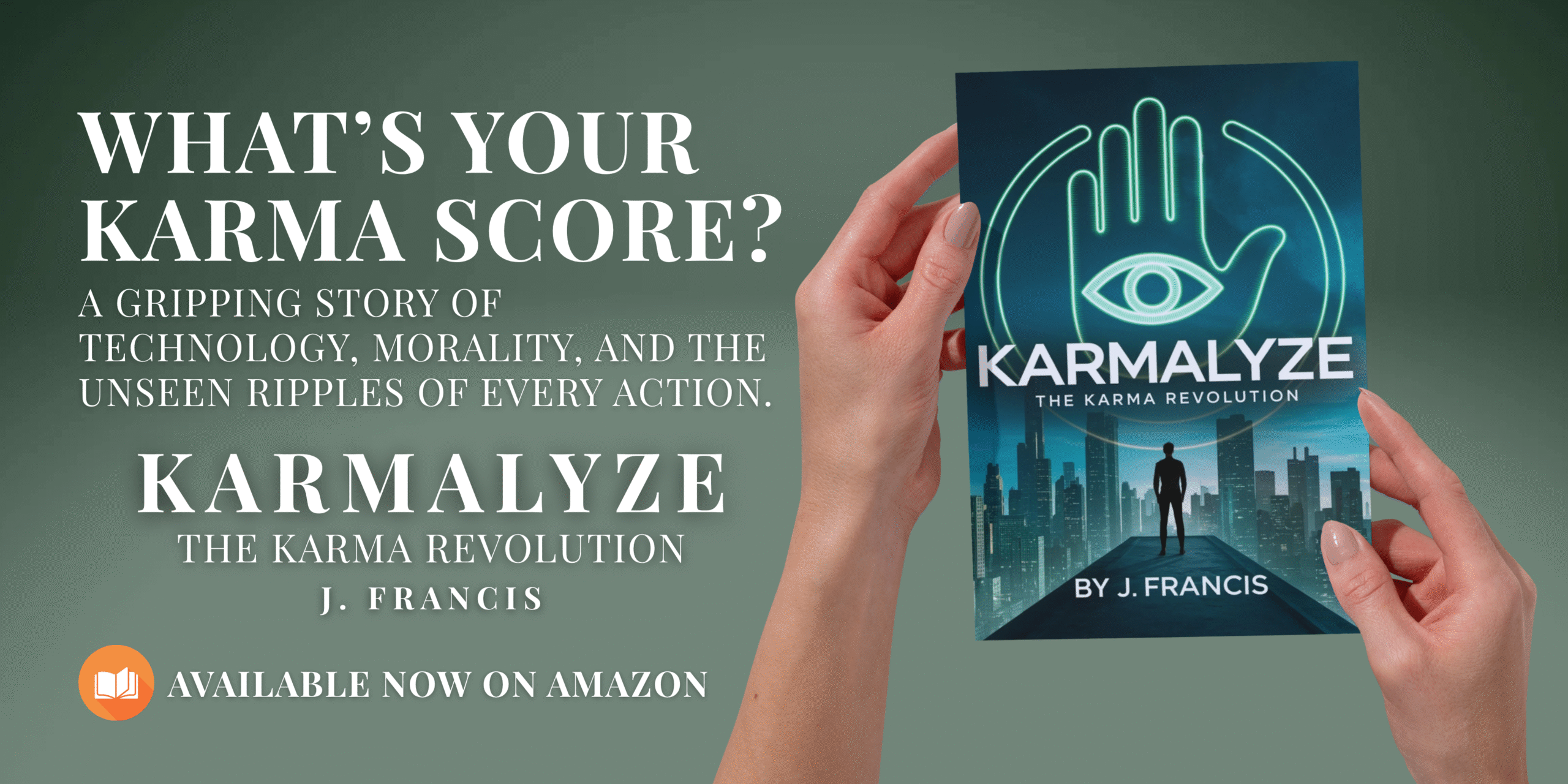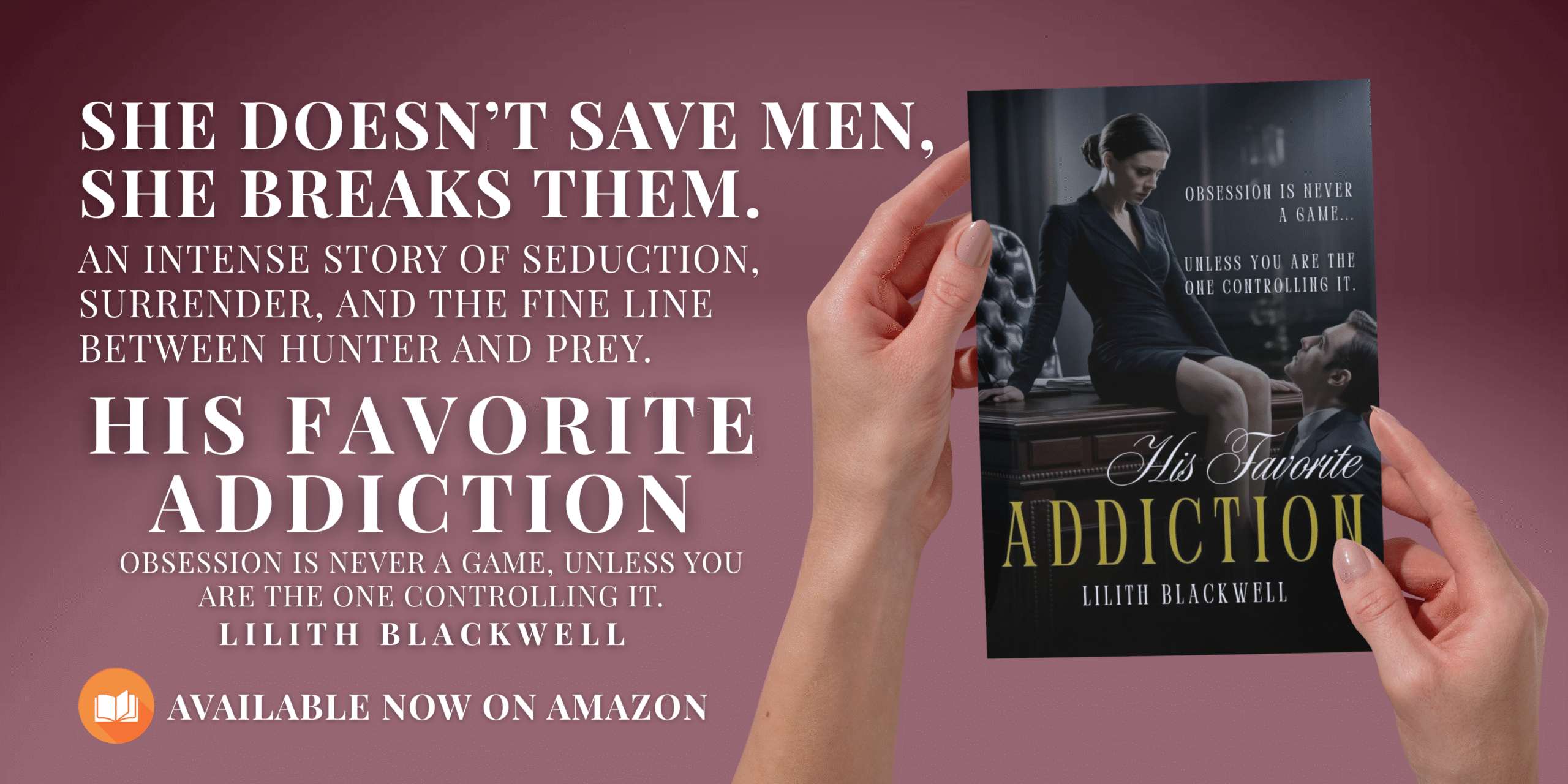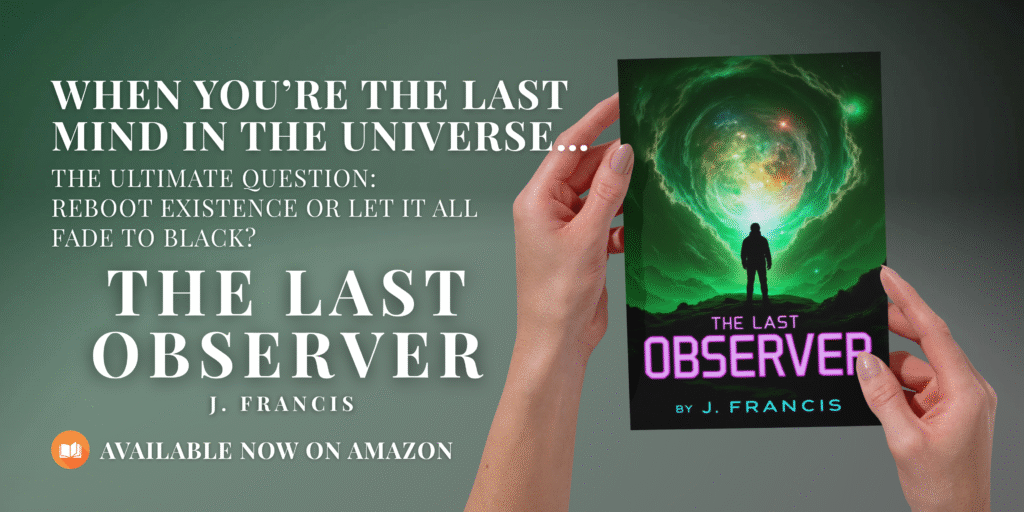
What happens when you’re the last consciousness in the universe?
In The Last Observer, J. Francis delivers a haunting, cerebral journey into the nature of reality, identity, and choice. This is not a story of spaceships or alien invasions; it’s a meditation on existence itself—a story that asks what happens when there’s nothing left to see, and yet, you are still here.
A deeply philosophical sci-fi tale, The Last Observer pulls the reader into the mind of Dr. Aiden Voss, the final witness to a universe that has already died. In the vast, empty void, he is confronted with an impossible decision: reboot existence, or let it all fade into silence.
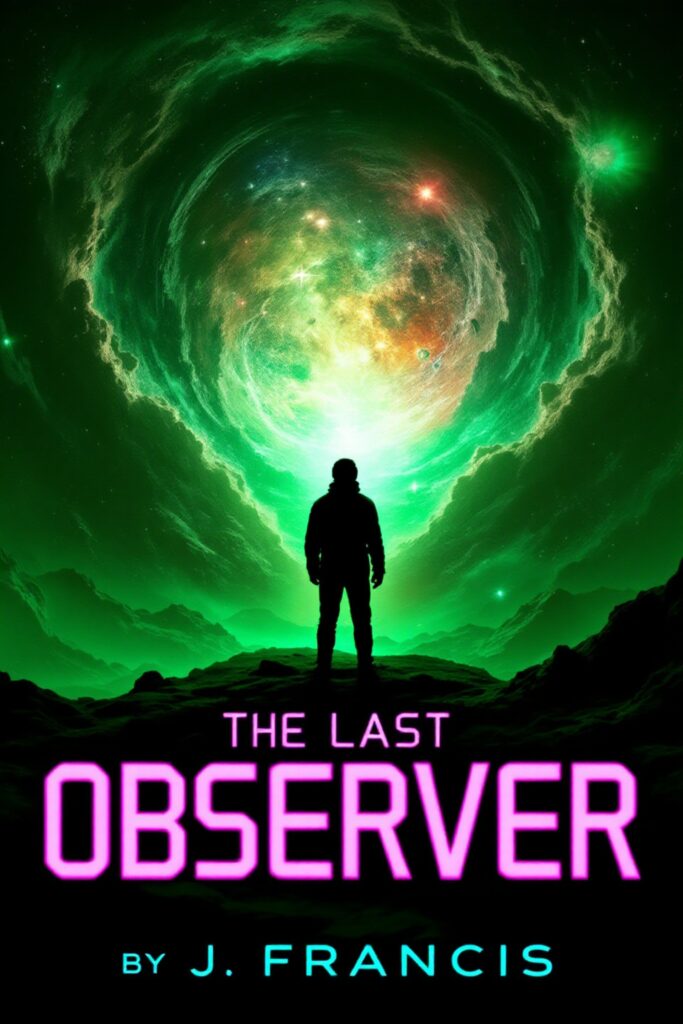
Alone in the Void
The story opens on a chilling note. Aiden drifts in an endless nothingness, his body gone, his sense of time shattered. Memories slip through his mind like sand, impossible to hold. Around him: no light, no sound, no warmth—just the crushing weight of emptiness.
But then, a voice.
“You are the last.”
This voice—The Archivist—is neither human nor alien. It’s something older, stranger, perhaps a reflection of Aiden’s own fractured consciousness. The Archivist offers him a single truth: he is the Observer. So long as he perceives reality, it continues to exist. When he lets go, all of existence ends.
The premise is as chilling as it is profound. Does the universe depend on perception? And if so, what does it mean to be the last perceiver?
The Observer Effect on a Cosmic Scale
Throughout The Last Observer, J. Francis weaves quantum mechanics and existential philosophy into a gripping narrative.
Aiden’s scientific mind struggles with the implications. As a physicist, he understands the Observer Effect—the idea that particles exist in multiple states until measured. But could this principle apply to everything? Is the universe real because it’s observed, or does it exist independent of any witness?
As The Archivist guides Aiden through memories and echoes of the past, the question grows heavier: Is he sustaining reality by observing it? Or is he trapped in a delusion of his own making?
Fractures of Memory and Illusion
The void is not entirely empty. Flickers of memory bleed into the darkness:
- A house bathed in autumn sunlight.
- A woman’s laugh.
- The sound of a child’s voice calling, “Daddy.”
These memories feel real, grounding, but they are dangerous. The Archivist warns Aiden not to give them power, lest they become reality and trap him in illusion.
But as Aiden confronts these fragments—his wife, his daughter, a life long past—he begins to question everything. Were these memories ever real? Or are they fabrications of a mind desperate to escape the truth?
A Cycle Without End
As Aiden unravels the void’s secrets, he learns something even more terrifying: this isn’t the first time he’s been here.
The Archivist reveals that Aiden has stood at this precipice countless times before. Each time, he has chosen to reboot the universe, erasing himself and beginning again. Galaxies have been born, civilizations have risen and fallen, and Aiden has returned—unaware, every time, that he has done this before.
The question hangs like a blade: Is this really a choice? Or is he caught in an endless loop?
The Final Decision
As the narrative builds to its climax, Aiden faces the ultimate paradox.
If he reboots existence, he sacrifices himself and begins another cycle. Life will flourish anew, but he will never know it.
If he lets go, everything—past, present, future—vanishes forever. No more stars. No more time. No possibility of rebirth.
The Archivist pleads with him to continue. But Aiden begins to realize: The Archivist isn’t a guide or a cosmic steward. It is fear, wearing his voice—a self-imposed mechanism to keep him from breaking the cycle.
The choice is his alone.
A Meditation on Existence
The Last Observer is more than a sci-fi novel. It’s a mirror reflecting the reader’s deepest fears and questions:
- Is there meaning in endless repetition?
- Can existence persist without perception?
- And if we had the power to end it all, would we?
J. Francis writes with precision and depth, balancing cosmic horror with profound beauty. The prose is hauntingly poetic, capturing the loneliness of being the last mind in creation.
This is a book that lingers long after the final page, echoing in the quiet spaces of your own thoughts.
Would You Let Go?
At the edge of eternity, The Last Observer asks a question few are prepared to answer: If existence itself depended on you, would you choose to continue—or would you choose oblivion?
This is not a tale of heroes or villains. It’s about the weight of perception, the fragility of reality, and the terrifying power of choice.
In the end, perhaps the scariest possibility is that there’s no one watching but you.
Available Now
📖 The Last Observer
✍️ By J. Francis
🔗 Read it on Amazon

